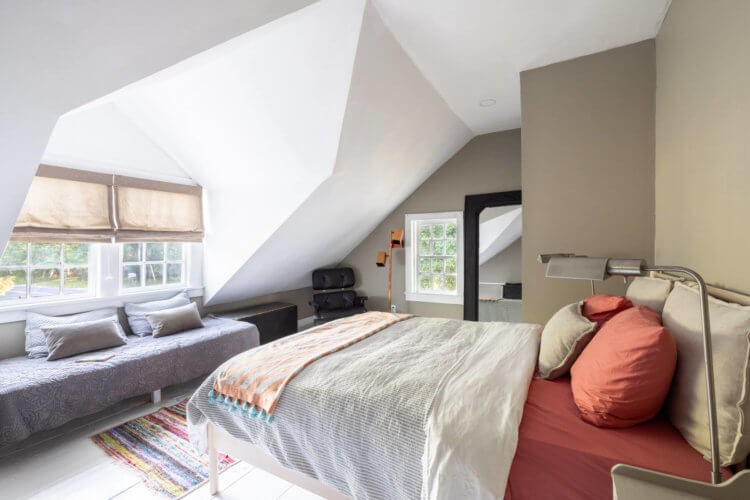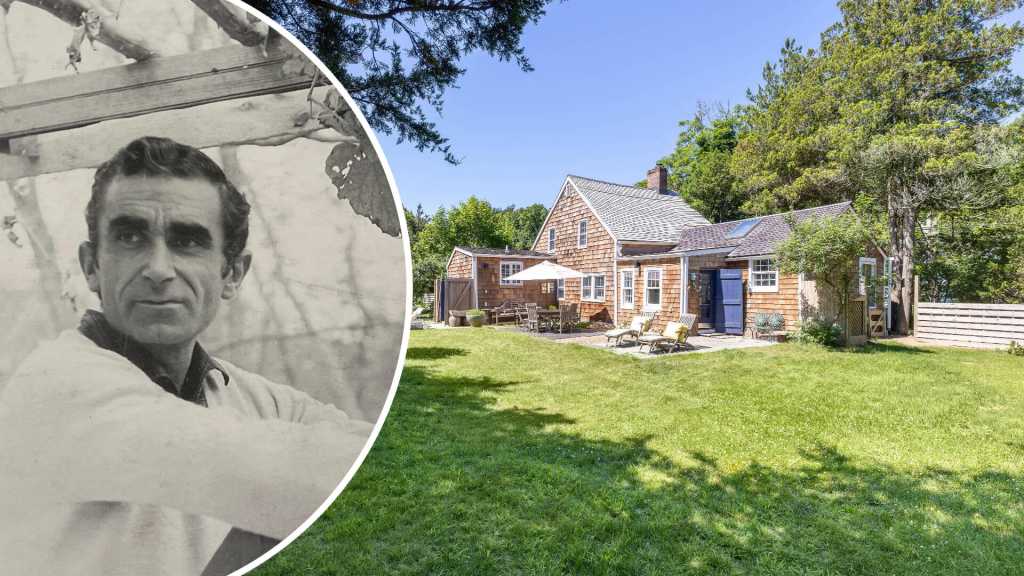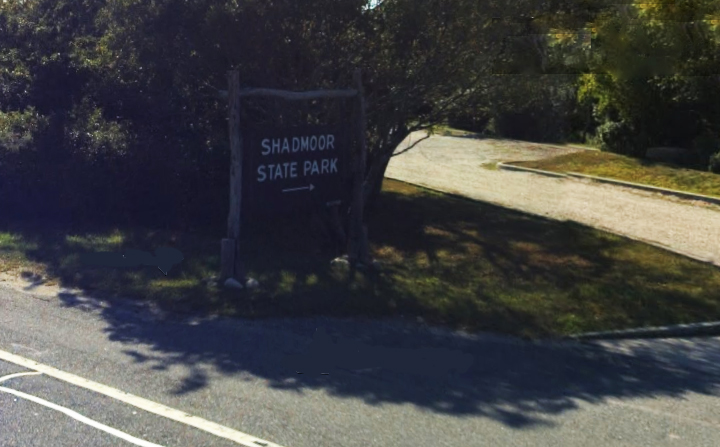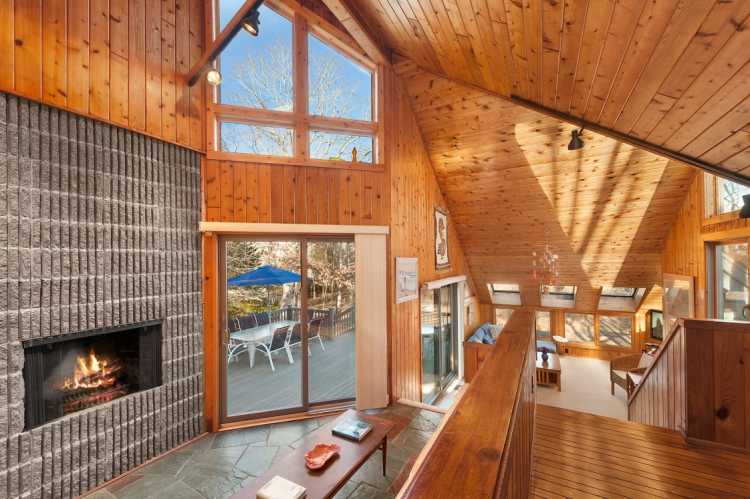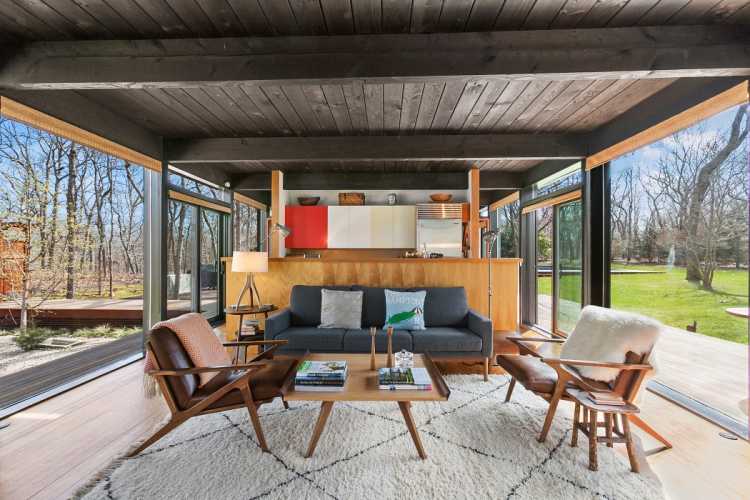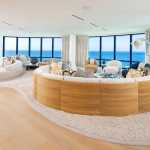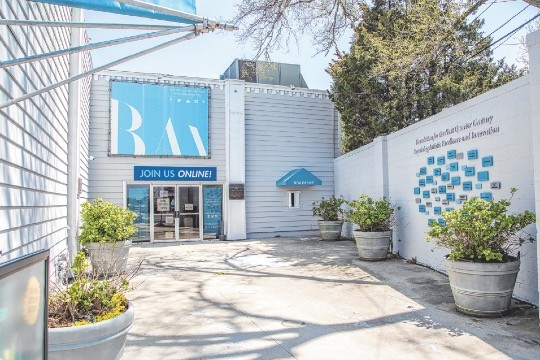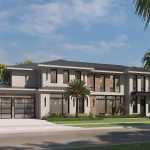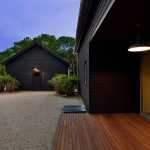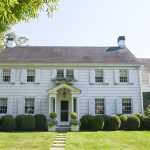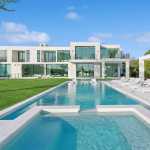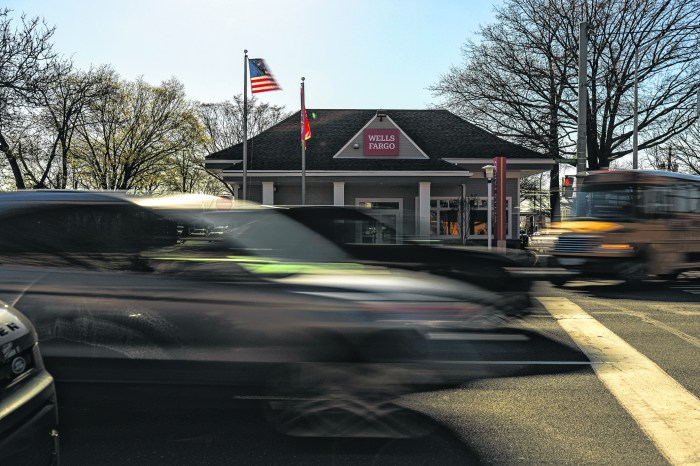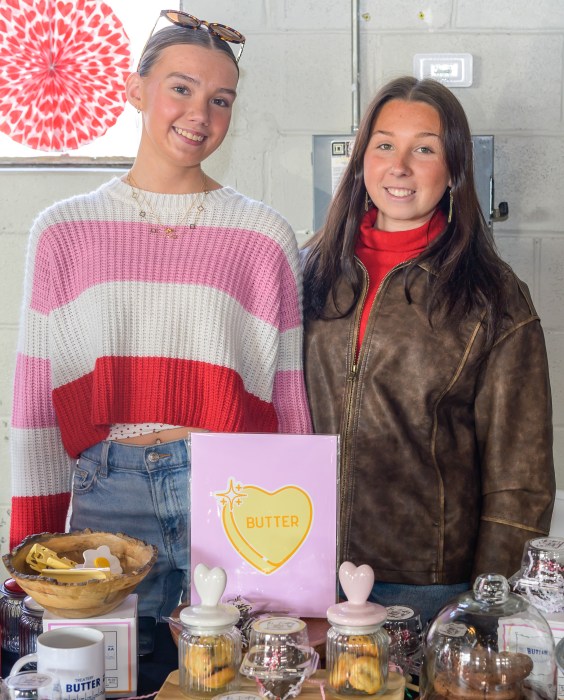A circa-1838 home once owned by renowned Abstract Expressionist artist Nicolas Carone is on the market for the asking price of $1.745 million.
Located on Three Mile Harbor-Hog Creek Road in Springs and across from Three Mile Harbor, the one-acre property includes a 1,400-square-foot three-bedroom, three-and-a-half bathroom cottage and an accessory structure, which Carone used as a studio.
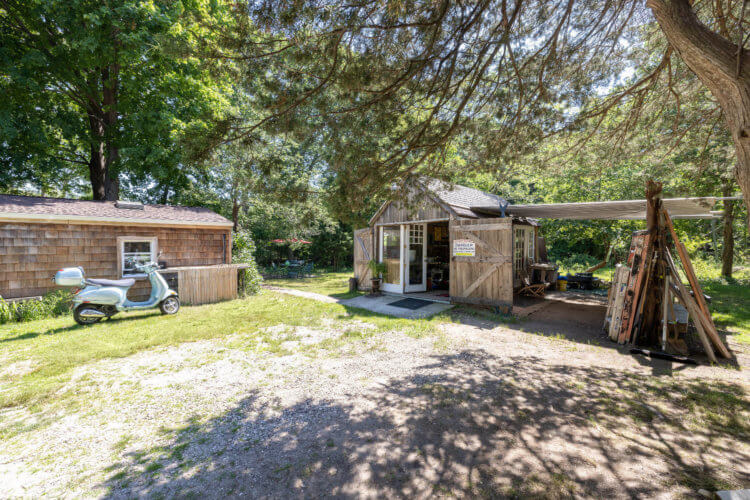
Though the home has had several owners over the years, this is the first time in almost a century that it’s officially on the market, explains listing agent Rebekah C. Baker, of Sotheby’s International Realty, whose husband Tom Burke owns the home.
Burke bought it from the family of Herb Hirsch, a friend and attorney who specialized in corporate and art law, who died in 2015. Hirsch had purchased it directly from Carone in 1965, and used it as a summer home for his family.
In the six-plus years he’s owned the home, Burke has put on a new cedar shingled roof and added central air, put in a new well and septic system, and updated the electric.
“The mechanicals and the structural integrity have been reinforced and worked on,” says Baker.
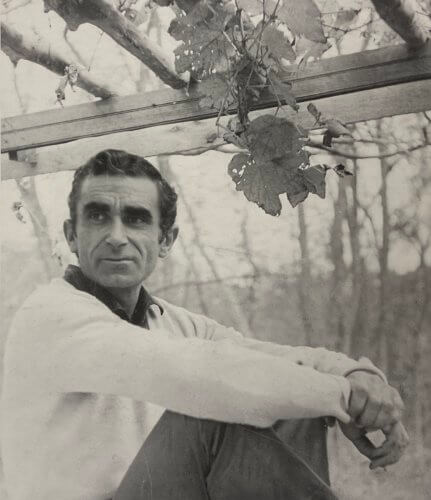
Nicolas Carone At Work and Home
In 1953, famed Abstract Expressionist artists Jackson Pollock and Lee Krasner, whose home/studio was on nearby Springs Fireplace Road, saw the house and called Carone, who’d been renting a place in the area.
At the time, Jackson and Krasner were acting as unofficial real estate agents for their artist friends in the city, notes Frank Messina, who is writing the biography Shadowed Master: The Nicolas Carone Story, which will be published next year.
“It was also a time when Pollock had become reclusive,” Messina says. “But he particularly adored Carone and cherished the idea of having him nearby.”
In 1954, Carone moved into the home with his wife Adele Bishop and their twin boys Christian and Claude, and with an assist from Pollock, built the studio out of a former chicken coop, lining the floor with brick and installing cedar planks and a wood-burning stove for the winter months, says Messina.
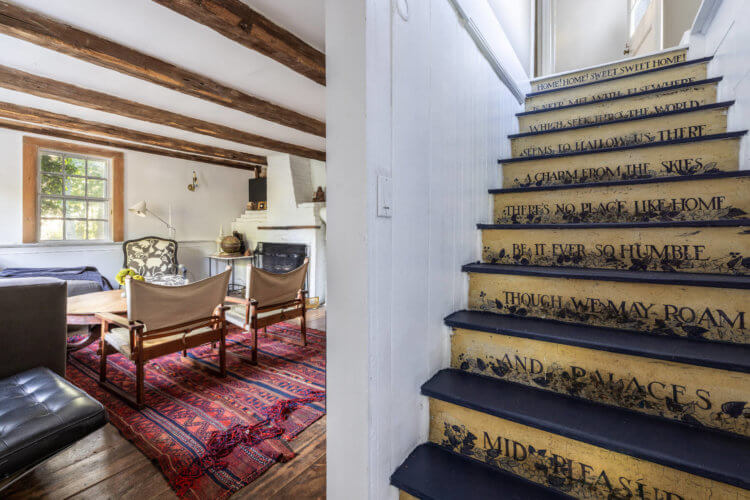
Born in 1917, Carone was part of the New York School of Abstract Expressionists. He produced some of his most iconic works at the East Hampton studio, including the four-part “Psychomachia” series, notes Messina. “Psychomachia II” hangs in the permanent collection of the Whitney Museum of American Art; “Psychomachia IV” is at the NSU Art Museum in Fort Lauderdale. Other notable Carone works, Messina says, are “Threshold, 1957” and “Nuptial Waters.”
“The location is also where Carone made dozens of colorful abstract works on paper, mounted on panels, many of which were exhibited at the Pollock-Krasner House and Study Center in 2013 for the show, Nicolas Carone: The East Hampton Years,” says Messina. “Most anything made in the years 1954-1964 was done at the studio at Three Mile Harbor Road.”
After Carone split up from his wife, he moved back to New York City and in 1964, rented the house to fellow Abstract Expressionist Willem de Kooning, who resided there while his studio on Woodbine Drive in Springs was being completed, before selling it to Hirsch a year later.
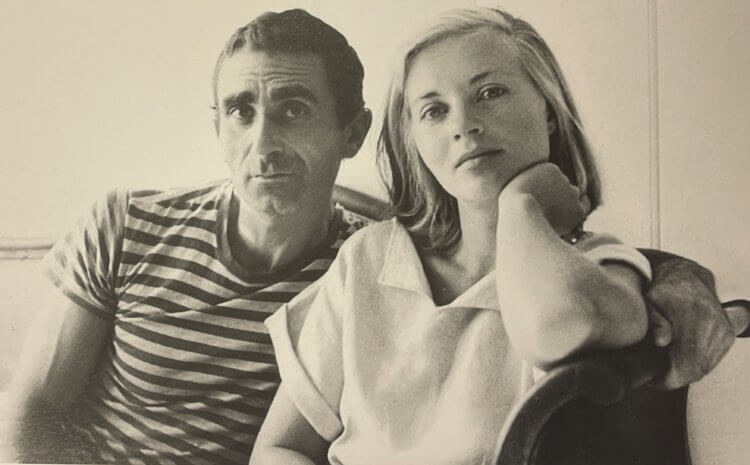
The Artists’ Touch
Carone’s wife, who owned Lord & Bishop, a custom decorative stenciling business, left her mark on the cottage with stencils that still decorate the walls of the house and, notably on the stairs, which ascending spell out the lyrics to the traditional song, “Home Sweet Home.” Because of its artistic provenance, the house is historically protected, notes Baker.
“It’s history that is intact, which is really wonderful and very rare,” says Baker. “Most structures like this have been torn down and replaced with more contemporary homes.”
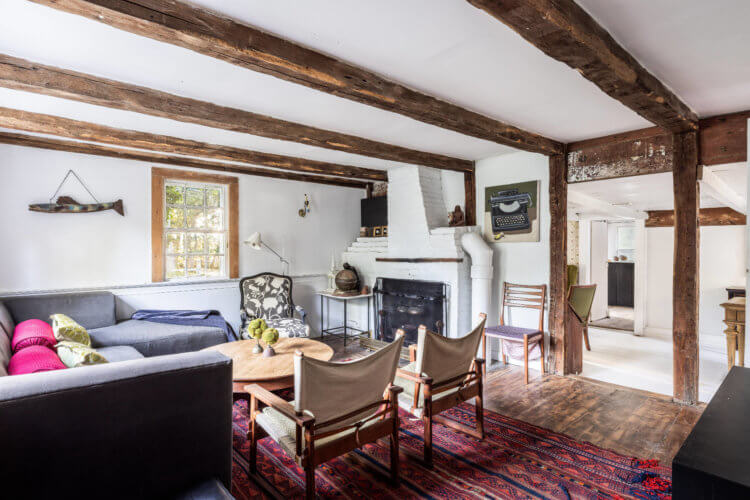
The house cannot be moved from its foundation and some interior aspects of the home are also protected, such as the fireplace and its surrounding area.
“The truth is that a buyer who wants this will want to keep those elements because that’s what makes it special. There are some features in the living room area that you don’t find anymore,” Baker says, noting that the fireplace dates back to 1838, and the built-in wood box to its side, where they stored firewood, is of similar vintage.
“In the fireplace, there’s a bread oven, that’s like a pizza oven, that’s very sweet,” Baker says. “There are beautiful beams and beautiful floors.”
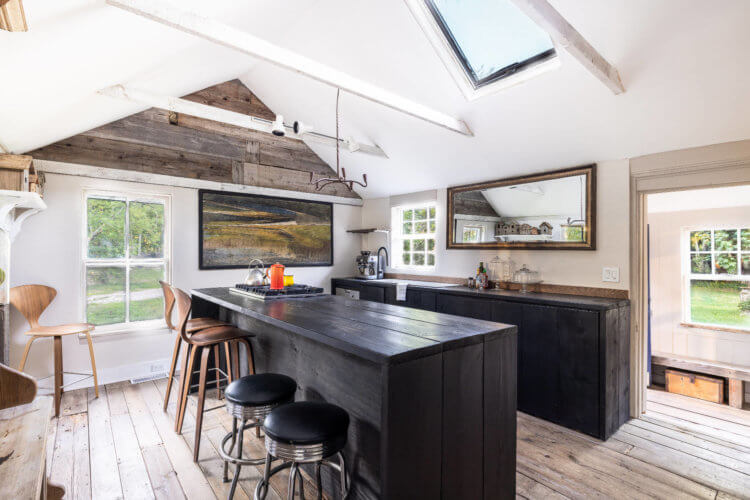
There are no restrictions on altering many other areas of the house, says Baker, adding, “We did renovate elements of the kitchen and baths, but we tried to keep it so it matches the old.” Dotted throughout with rustic wood, the cottage has a wood-beamed ceiling in the living room, wide-planked wood floors, and wood rafters in the kitchen The first-floor primary bedroom has French doors leading out to the backyard and, like each of the bedrooms, has white painted wood floors.
Carone’s former 650-square foot studio, which is now being used by Burke to create sculptures, has a brick floor, skylight and a sink and toilet — which is grandfathered into the property.
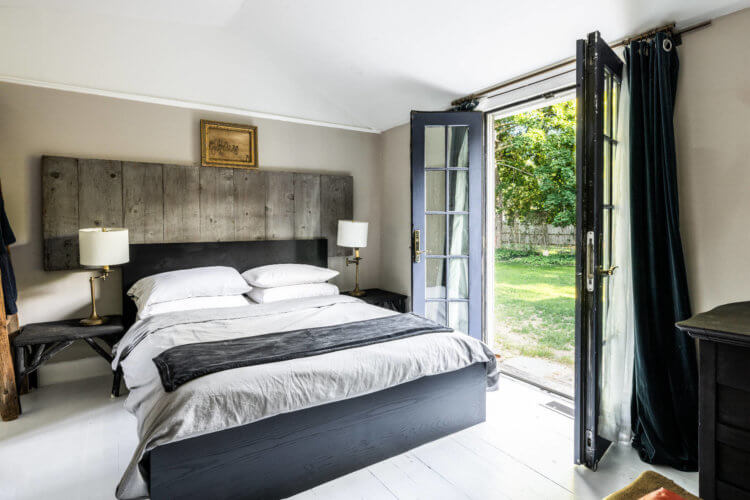
Though not fully fenced in, the property does have a number of decorative gates and rustic fences, wonderful old-growth specimen trees, a slate patio, a one-car garage/workshop and two outdoor showers: one near the main cottage; the other serving the artist’s studio.
Baker is also offering two separate one-acre adjacent lots behind the home, though she has not yet specified a price.
“It’s not currently listed,” Baker says. “It could be available for someone who wanted a kind of a compound.”
This article appeared as the cover story for the September 2022 issue of Behind The Hedges. Read the digital version here.
